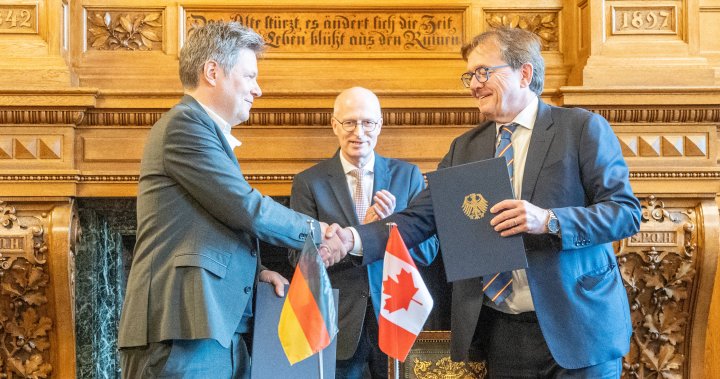
Canada, Germany ink hydrogen deal in bid to shun Russian energy
Global News
Canada, citing the need to shun Russian energy, signed an agreement with Germany Monday it said would accelerate work towards the commercial-scale trade of clean hydrogen fuel.
Canada, citing the need to shun Russian energy, on Monday signed an agreement with Germany that it said would accelerate work towards the commercial-scale trade of clean hydrogen fuel.
The two nations inked a memorandum of understanding that commits them to backing transactions between Canadian hydrogen producers and Germany’s industrial manufacturing and energy distribution sectors.
“Canada is working with European allies to displace imports of Russian oil and gas and fight climate change with clean Canadian hydrogen. Canada can be a world-leading producer and exporter of clean hydrogen,” the federal natural resources ministry said in a statement.
Hydrogen is a zero-carbon fuel best suited for powering large industrial machines, heavy vehicles and for heating.
To create a hydrogen economy, Germany launched the H2-Global project in 2021 using a “double auction” model in which the government would buy the green fuel from producers and sell it to industrial consumers for less.
Germany’s economy ministry said the agreement expands the model to include the Canadian government’s willingness to help subsidize any losses. The subsidy amount was not specified.
Berlin said last month it would earmark up to 3.53 billion euros ($3.84 billion) of public funds to procure green hydrogen and its derivatives from 2027 to 2036 to compensate for the difference between supply and demand prices.
“Although some challenges remain, we believe a common H2-Global financing window can play an important role in closing the remaining pricing gap,” Economy Minister Robert Habeck said in a statement on Monday.













